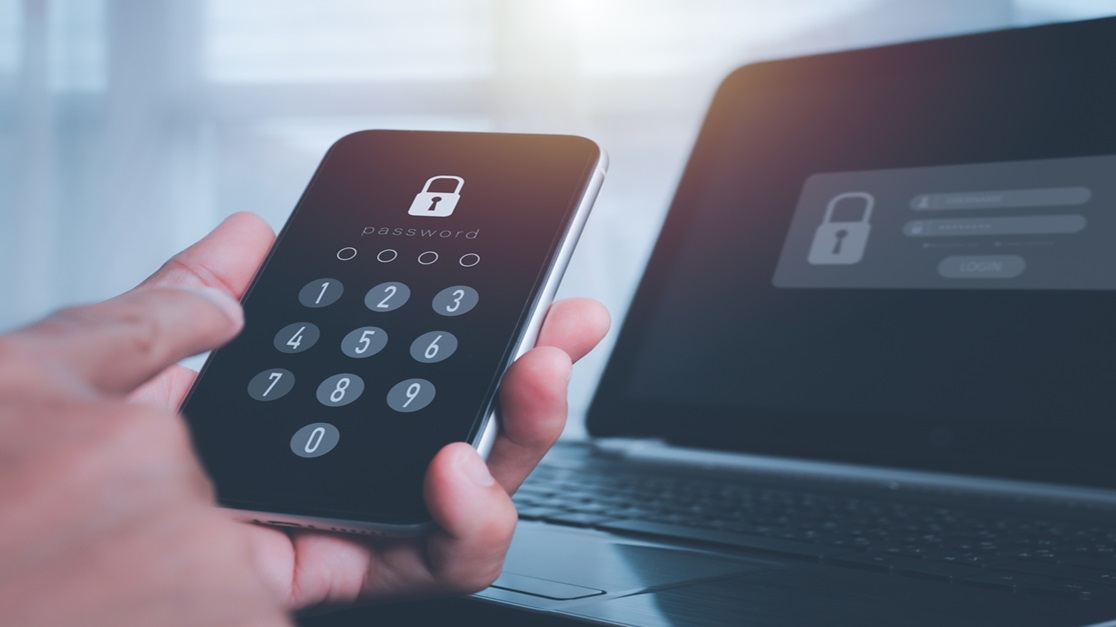Savings Accounts and Digital Privacy: Keeping Your Money Safe Online
December 07, 2024

In today's digital age, online banking has revolutionised how we manage our money. With just a few taps on our smartphones, we can check balances, transfer funds, and pay bills. But while Digital Savings Accounts offer unparalleled convenience, they also come with privacy risks,
Primarily because of the significant rise in online and phishing scams. This blog post aims to provide you with valuable information on how to keep your money safe online
4 Ways to Keep Your Savings Account Safe Online
1. Create a Strong Password
Your online banking password is the first line of defence against unauthorised access. Avoid using obvious words, personal information, or short passwords. Instead:
- Use a mix of uppercase and lowercase letters, numbers, and symbols.
- Make it at least 10 characters long.
- Avoid personal details like birthdays or names.
- Use a unique password for each account.
- Change it every 3-6 months.
2. Enable Two-Factor Authentication
Two-factor authentication (2FA) adds an extra layer of security. With 2FA enabled, you'll need to provide a second form of verification, such as:
- A code sent via SMS to your phone
- Biometric data like a fingerprint scan
- A physical security key
Here's how it works: Let's say a hacker manages to crack your password. The bank will ask for the 2FA code when they try to log in. They'll be locked out unless the hacker can access your phone or security key.
3. Be Wary of Public Wi-Fi
While public Wi-Fi networks are convenient, they pose significant risks to your online security. Hackers can intercept sensitive information transmitted over unencrypted networks or set up malicious hotspots to capture your data.
To protect yourself:
- Avoid using online or mobile banking services when connected to public Wi-Fi.
- Disable public file sharing on your devices.
- Stick to secure websites (look for "https" in the URL) and use a virtual private network (VPN) for added protection.
4. Set Up Banking Alerts
Banking alerts are an essential tool in detecting and preventing fraudulent activities on your savings account. By signing up for alerts, you'll receive instant notifications of suspicious or unauthorised transactions.
You can opt for alerts such as:
- Low or high balance notifications
- New credit or debit transactions
- Password changes
- Personal information updates
5. Be Cautious of Phishing Scams
Phishing scams trick users into revealing personal information. Be wary of emails, messages, calls that request sensitive information or redirect you to unfamiliar websites. Always verify the authenticity of the communication by contacting your bank directly through official channels.
6. Keep Your Devices Secure
Ensure that the devices you use to access your Digital Savings Account are secure. Install reliable antivirus software and keep it updated. Avoid using public Wi-Fi networks for financial transactions as these can be less secure and more vulnerable to interception.
What is Two-Factor Authentication (2FA)?
Two-factor authentication (2FA) requires an additional verification step beyond your password, such as a code sent to your phone or generated by an app. This added layer of security makes it more difficult for unauthorised users to access your account.
Final Thoughts
In today's digital world, keeping your money safe online is paramount. Strive to maintain digital privacy for your savings account. For any suspicious transactions, inform your bank immediately.
If you're just starting out in your savings journey, opening a Savings Account with Ujjivan Small Finance Bank can be a good start. We have a wide variety of Savings Accounts catering to different financial needs - sign up for the one that meets your financial goals. Alternatively, you can browse through Ujjivan SFB product suite - our wide range of financial products are designed to make your financial life better.
Disclaimer:
The contents herein are only for informational purposes and generic in nature. The content does not amount to an offer, invitation or solicitation of any kind to buy or sell, and are not intended to create any legal rights or obligations. This information is subject to updation, completion, amendment and verification without notice. The contents herein are also subject to other product-specific terms and conditions, as well as any applicable third-party terms and conditions, for which Ujjivan Small Finance Bank assumes no responsibility or liability.
Nothing contained herein is intended to constitute financial, investment, legal, tax, or any other professional advice or opinion. Please obtain professional advice before making investment or any other decisions. Any investment decisions that may be made by the you shall be at your own sole discretion, independent analysis and evaluation of the risks involved. The use of any information set out in this document is entirely at the user’s own risk. Ujjivan Small Finance Bank Limited makes no representation or warranty, express or implied, as to the accuracy and completeness for any information herein. The Bank disclaims any and all liability for any loss or damage (direct, indirect, consequential, or otherwise) incurred by you due to use of or due to investment, product application decisions made by you on the basis of the contents herein. While the information is prepared in good faith from sources deemed reliable (including public sources), the Bank disclaims any liability with respect to accuracy of information or any error or omission or any loss or damage incurred by anyone in reliance on the contents herein, in any manner whatsoever.
To know more about Ujjivan Small Finance Bank Products Visit:"https://www.ujjivansfb.in"
All intellectual property rights, including copyrights, trademarks, and other proprietary rights, pertaining to the content and materials displayed herein, belong
to Ujjivan Small Finance Bank Limited or its licensors. Unauthorised use or misuse of any intellectual property, or other content displayed herein is strictly prohibited and the same is not intended for distribution to, or use by, any person in any jurisdiction where such distribution or use would (by reason of that person’s nationality, residence or otherwise) be contrary to law or registration or would subject Ujjivan Small Finance Bank Limited or its affiliates to any licensing or registration requirements.
FAQs
1. Can I monitor my Digital Savings Account for unauthorised transactions?
For every transaction, deposit or withdrawal, banks send communication vis SMS or mail. Keep a track of all communications sent by the bank. For any unauthorised transactions, contact your bank immediately.
2. How can I ensure the security of my Digital Savings Account when using a public Wi-Fi network?
Avoid accessing online banking services and sensitive information when using public Wi-Fi networks to ensure the security of your digital savings account.
3. Can I change my Digital Banking password through the mobile app?
Yes, most mobile banking apps allow you to change your password directly within the app. Look for the "Settings" or "Security" section to locate the password change option.
4. How often should I update my passwords?
It's a good practice to update your passwords regularly, ideally every 3 to 6 months. Additionally, change your passwords immediately if you suspect any security breach.
Latest Blogs

Dussehra 2025: How to Win Your Financial Battles with Smart Saving
Dussehra 2025 (also known as Vijayadashami) falls on Thursday, October 2, 2025.

eSIM Scam in India: I4C Warns Mobile Users About Rising Fraud – How to Stay Safe
The Indian Cybercrime Coordination Centre (I4C), a wing of the Ministry of Home Affairs, issued a strong warning to mobile users about the rapid increase in eSIM fraud in India.

How to Link PAN with Aadhaar: Step-by-Step Guide & Consequences of Not Linking
Linking your Permanent Account Number (PAN) with your Aadhaar is no longer just a best practice.

Annual Information Statement (AIS): A Complete Guide for Stress-Free ITR Filing
India’s tax season is in its final stretch.

ITR-1 (Sahaj) Restrictions: Income Sources Not Allowed & Filing Rules
With just a few days left before the 15 September 2025 deadline for filing Income Tax Returns (ITRs) for Assessment Year (AY) 2025-26, many taxpayers are rushing to submit their forms online.





